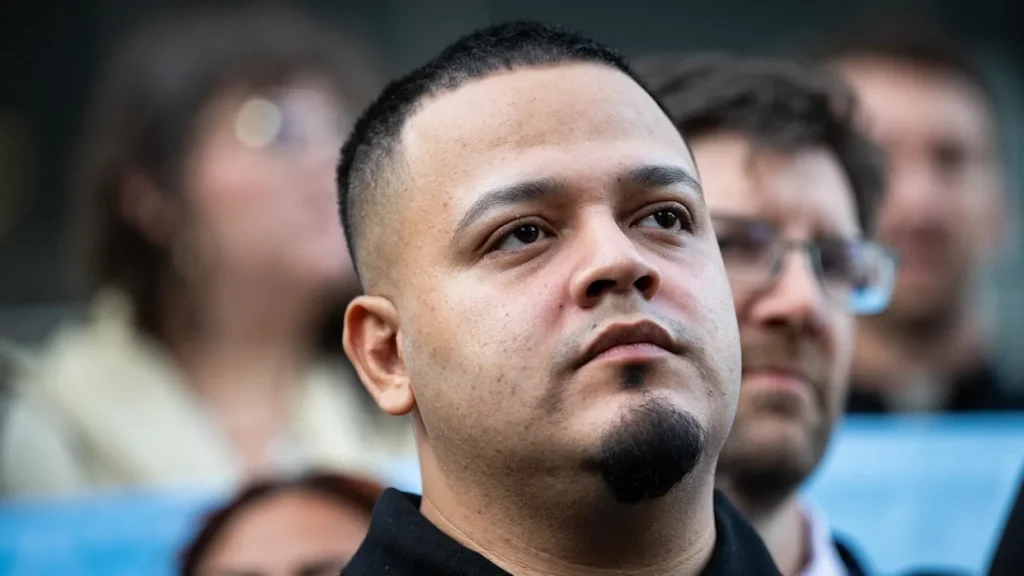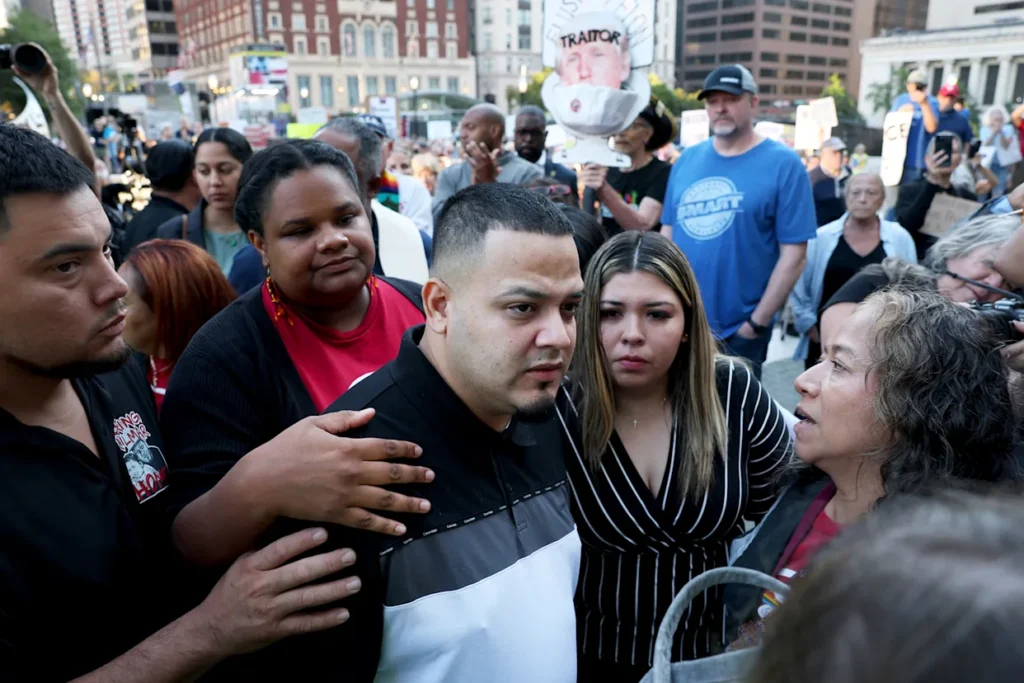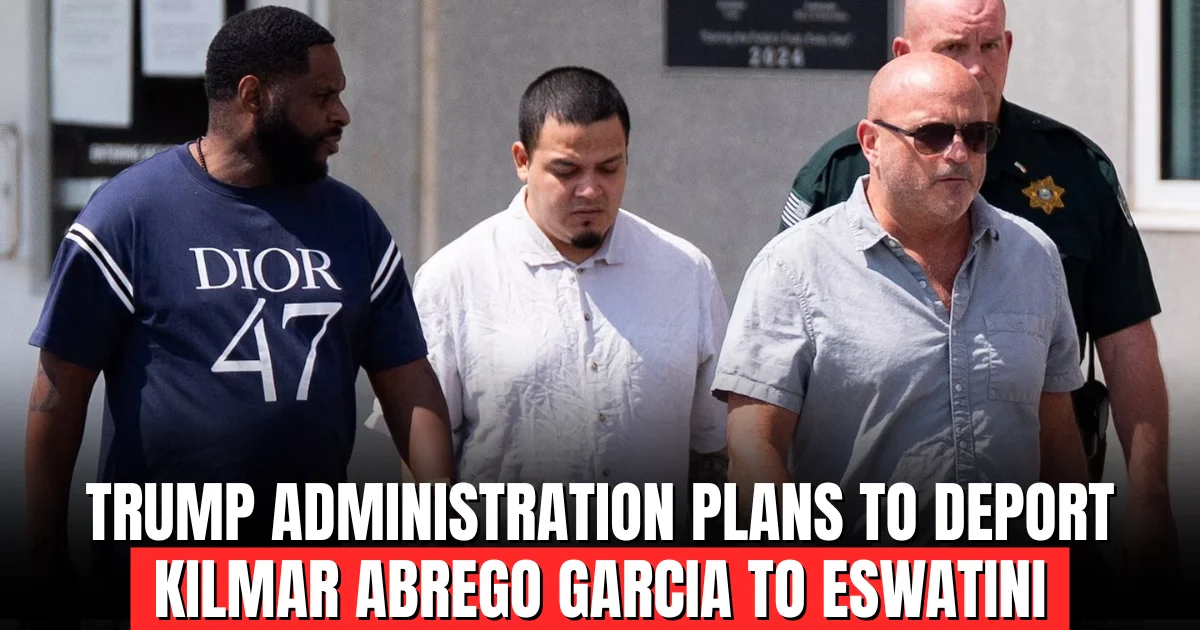The Trump administration plans to deport Kilmar Abrego Garcia to Eswatini despite his ongoing legal fight and asylum claims. Here’s what you need to know about the case, legal challenges, and international implications.
Table of Contents
Trump Administration Plans to Deport Kilmar Abrego Garcia to Eswatini Amid Legal Battle
The Trump administration has informed Kilmar Abrego Garcia, a Maryland resident, that it intends to deport him to Eswatini, a small African nation, as his legal battle continues. The controversial decision, obtained through emails reviewed by CNN, has triggered heated debates about immigration policy, asylum rights, and the government’s authority to deport individuals while criminal cases remain unresolved.
This latest twist in Abrego Garcia’s case has raised serious legal, humanitarian, and political questions about the administration’s aggressive immigration enforcement strategy.
Who is Kilmar Abrego Garcia?

Kilmar Abrego Garcia is a Maryland resident currently in ICE custody. He was previously deported to El Salvador, where he was mistakenly placed in a notorious mega-prison, before being brought back to the United States to face human smuggling charges.
However, before his criminal trial has even concluded, the Trump administration is attempting to re-deport him, sparking outrage from his legal team and immigrant rights advocates.
Why Eswatini?
Eswatini, formerly known as Swaziland, is a small, landlocked country in Southeast Africa, roughly the size of New Jersey. It is ruled by an absolute monarch and is one of four African nations — alongside Rwanda, South Sudan, and Uganda — that have signed agreements with the Trump administration to accept foreign deportees.
According to an email from Immigration and Customs Enforcement (ICE), Abrego Garcia’s deportation destination was changed to Eswatini after he raised concerns about being sent to Uganda or other countries, citing fear of persecution or torture.
However, ICE dismissed his claims, saying his attorneys had previously cited 22 different countries where he feared harm, calling his requests “hard to take seriously.”
Ongoing Legal Battle
Abrego Garcia’s case is far from over. A federal judge recently ruled that he cannot be deported until at least early October, as officials from the Trump administration are expected to testify about their efforts to re-deport him before his criminal trial concludes.
Key Points of the Case
- Abrego Garcia faces human smuggling charges in the U.S.
- He requested asylum, citing fears of torture and persecution.
- The administration initially planned to deport him to Uganda, but he objected.
- The new plan is to deport him to Eswatini under a U.S.-Eswatini agreement.
- His lawyers say he prefers Costa Rica, which has offered him limited legal status.
Trump Administration’s Stance

According to ICE officials, the deportation order is lawful and complies with an immigration judge’s ruling. A spokesperson said:
“An immigration judge ordered Mr. Abrego Garcia removed, and ICE will comply with that order.”
However, legal experts argue that attempting to deport someone before a criminal trial concludes raises constitutional and human rights concerns.
Eswatini’s Role in U.S. Deportations
Eswatini’s deal with the Trump administration makes it one of a handful of countries willing to accept deportees who aren’t citizens.
- Location: Southeast Africa
- Population: ~1.2 million
- Government: Absolute monarchy
- U.S. Partnership: One of four African nations with formal agreements to accept deportees
Eswatini’s participation highlights the global nature of U.S. immigration policy and how smaller nations are sometimes incentivized to cooperate in exchange for aid or diplomatic benefits.
Human Rights Concerns
Advocates warn that deporting Abrego Garcia to Eswatini could put his safety at risk. While Eswatini is relatively stable compared to other African nations, it faces criticism over human rights violations, limited political freedoms, and poor asylum protections.
Immigration lawyers argue that the administration is rushing deportations in ways that bypass due process, which could set a dangerous precedent for future cases.
Political Implications
This case is politically significant because it highlights:
- Trump’s aggressive immigration enforcement strategy
- The administration’s international agreements with countries like Eswatini
- The growing tension between federal courts and executive power
- How immigration policy may shape the 2024 election narrative
With the election season heating up, cases like Abrego Garcia’s are likely to fuel debates over border security, asylum rights, and international cooperation.
What Happens Next
Abrego Garcia’s legal team plans to:
- Challenge the deportation order in federal court
- Push for asylum approval before an immigration judge
- Argue for deportation to Costa Rica, which has expressed willingness to accept him
- Seek to delay any removal until after his criminal trial concludes
The next hearing is expected in early October, where the judge will review testimony from administration officials.
Public Reaction
The case has sparked mixed reactions:
- Supporters of strict immigration policies back Trump’s move, arguing that deportation upholds the law.
- Human rights groups argue that deporting someone to a country where they face potential harm violates U.S. and international protections.
- Many Americans are questioning why Eswatini, a country Abrego Garcia has no ties to, is being used as a deportation destination.
Final Thoughts
The planned deportation of Kilmar Abrego Garcia to Eswatini is more than just an immigration case — it’s a legal, political, and human rights battle with far-reaching consequences.
With the Trump administration doubling down on its tough immigration policies, federal courts, advocacy groups, and international partners will continue to clash over deportation practices in the coming weeks.
FAQs
1. Why does the Trump administration want to deport Kilmar Abrego Garcia?
Because an immigration judge ordered his removal after he faced human smuggling charges. The administration wants to enforce the order.
2. Why Eswatini instead of El Salvador or Costa Rica?
Eswatini has a formal deportation agreement with the U.S., while Costa Rica’s offer of legal status hasn’t been finalized.
3. Can Abrego Garcia still fight deportation?
Yes. A federal judge temporarily blocked his deportation until early October pending further hearings.
4. Is it legal to deport someone before a criminal trial ends?
It’s controversial. While ICE claims it is lawful, critics argue it violates due process rights.

